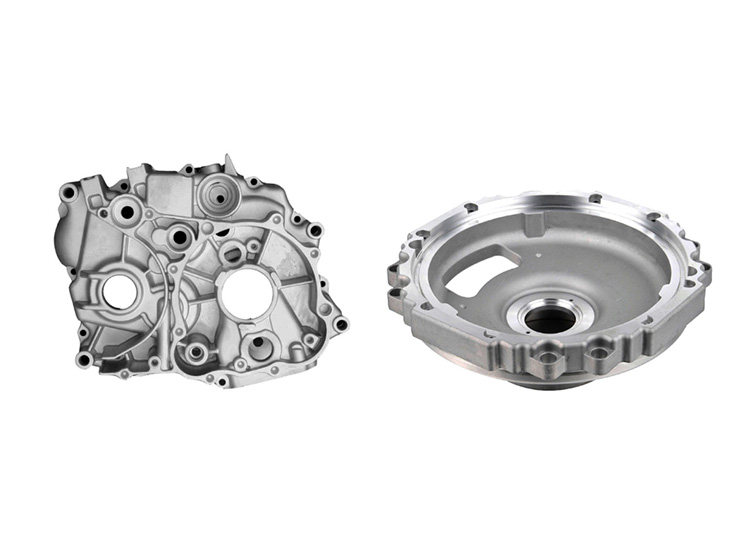Little Known Questions About Stahl Specialty Company.
Little Known Questions About Stahl Specialty Company.
Blog Article
Getting My Stahl Specialty Company To Work
Table of ContentsThe Definitive Guide for Stahl Specialty CompanyThe Single Strategy To Use For Stahl Specialty CompanyA Biased View of Stahl Specialty Company6 Simple Techniques For Stahl Specialty CompanyStahl Specialty Company Fundamentals Explained
The refined distinction depends on the chemical web content. Chemical Contrast of Cast Light weight aluminum Alloys Silicon promotes castability by decreasing the alloy's melting temperature level and improving fluidity throughout spreading. It plays a critical duty in allowing elaborate molds to be filled accurately. In addition, silicon adds to the alloy's stamina and use resistance, making it important in applications where sturdiness is critical, such as automobile components and engine components.It additionally improves the machinability of the alloy, making it simpler to refine right into completed products. By doing this, iron adds to the total workability of light weight aluminum alloys. Copper raises electric conductivity, making it advantageous in electric applications. It likewise enhances corrosion resistance and contributes to the alloy's overall strength.
Manganese adds to the toughness of light weight aluminum alloys and improves workability. It is generally made use of in wrought aluminum items like sheets, extrusions, and accounts. The existence of manganese aids in the alloy's formability and resistance to splitting during fabrication procedures. Magnesium is a lightweight component that supplies toughness and impact resistance to light weight aluminum alloys.
Zinc boosts the castability of aluminum alloys and helps regulate the solidification procedure throughout casting. It boosts the alloy's toughness and hardness.
All about Stahl Specialty Company
Since aluminum-silicon alloys have good spreading buildings, high gas residential or commercial properties, simple processes, and outstanding corrosion resistance, aluminum-silicon alloys are most commonly made use of in the die-casting market at home and abroad. At the very same time, aluminum-silicon alloys are likewise reasonably early and widely acknowledged alloys developed and used in die-casting. After continual research study and renovation, a lot of the existing worldwide mainstream aluminum-silicon alloys have actually been wrapped up and are absolutely nothing greater than A356, A360, A380, ADC12, B390, and A413.
The main thermal conductivity, tensile strength, return toughness, and prolongation differ. Select ideal basic materials according to the efficiency of the target product produced. Amongst the above alloys, A356 has the highest thermal conductivity, and A380 and ADC12 have the most affordable. The tensile limitation is the contrary. A360 has the ideal return stamina and the greatest elongation price.

The 5-Minute Rule for Stahl Specialty Company
In accuracy casting, 6063 is appropriate for applications where elaborate geometries and high-grade surface area finishes are paramount. Examples consist of telecommunication rooms, where the alloy's premium formability permits smooth and aesthetically pleasing styles while keeping architectural integrity. advice Similarly, in the Lights Solutions industry, precision-cast 6063 components produce classy and effective illumination components that call for intricate forms and great thermal performance.
(https://blogfreely.net/stahlspecialc/stahl-specialty-company-is-one-of-the-largest-permanent-mold-foundries-in-the-us)
It results in a finer surface finish and much better deterioration resistance in A360. In addition, the A360 exhibits premium elongation, making it perfect for complex and thin-walled elements. In accuracy spreading applications, A360 is appropriate for industries such as Customer Electronics, Telecommunication, and Power Devices. aluminum metal casting. Its improved fluidness permits detailed, high-precision elements like mobile phone coverings and interaction device housings.

In accuracy spreading, light weight aluminum 413 beams in the Consumer Electronics and Power Devices markets. It's frequently used to craft intricate parts like mobile phone housings, cam bodies, and power device cases. Its accuracy is impressive, with limited tolerances as much as 0.01 mm, guaranteeing remarkable item assembly. This alloy's remarkable corrosion resistance makes it a superb option for outside applications, making certain durable, resilient products in the mentioned industries.
Stahl Specialty Company for Beginners
The light weight aluminum alloy you pick will considerably affect both the casting process and the properties of the final item. Due to the fact that of this, you need to make your choice very carefully and take an educated approach.
Identifying the most appropriate light weight aluminum alloy for your application will suggest weighing a wide range of attributes. These comparative alloy attributes comply with the North American Die Casting Association's standards, and we've separated them right into two categories. aluminum metal casting. The first category addresses alloy features that affect the production process. The second covers attributes impacting the residential properties of the last product.
The alloy you select for die spreading directly impacts several elements of the spreading process, like just how simple the alloy is to function with and if it is vulnerable to casting defects. Warm breaking, also called solidification breaking, is a normal die casting defect for aluminum alloys that can result in inner or surface-level splits or fractures.
Not known Factual Statements About Stahl Specialty Company
Particular aluminum alloys are much more prone to warm cracking than others, and your choice should consider this. aluminum foundry. It can harm both the cast and the die, so you ought to look for alloys with high anti-soldering residential or commercial properties.
Deterioration resistance, which is already a notable attribute of light weight aluminum, can vary considerably from alloy to alloy and is a vital particular to take into consideration depending on the environmental problems your product will certainly be revealed to. Put on resistance is an additional building typically sought in light weight aluminum products and can separate some alloys.
Report this page